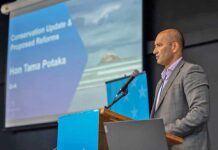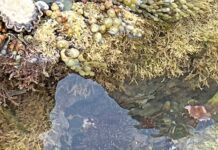Over decades, Waiheke residents become inured to having one of the highest average rating valuations per household in the region and chasing metrics from an institution as bulky and self-serving as Auckland Council has always been disturbing.
Officials said this year’s citywide average residential rate for the 2025/2026 rating year across the city – from Warkworth to Remuera to the Manukau, out west and east – would be just over $4000, an annual increase of $223 compared to the previous year. Sounds reasonable.
Nothing to see here. A 5.6 percent increase for the 2025/26 financial year would be one of the country’s lowest municipal rates increases.
Or so officials said. And the mayor. And Auckland council’s pet AI confirmed that yes, it applied to Waiheke as well – at least until a fellow AI pundit on the website decided Auckland Council rates for Waiheke Island were “showing significant property value declines, suggesting lower rates increases for some properties compared to the regional average.”
Or, more probably, a skew to excessive valuations in the previous two valuation rounds.
Property owners on the Strand at Ōnetangi – including Prime Minister Christopher Luxon and his wife Amanda – said otherwise, rightly objecting to their new valuation in June, and having their house revalued and, in short order, their rates massively reduced.
My own island rates bill, after nearly 50 years of coastal bush regeneration in a strict (but sometimes startlingly elastic) landscape protection zone, came in at $10,000.
Well over twice the city average and up from, in 2012, $1,400 at the beginning of this second super city amalgamation. By 2022 it was $5,685 and another $1000 increase in 2023 took the bill over $7,000 per annum before the new, putative valuation jumped by several more improbable millions to the present figure.
I have yet to speak with any fellow island ratepayer who has had a rates increase of less than 20 percent in this last round and the region-wide average has always been infuriatingly specious for the whole dozen years of this regime.
Accordingly, and council is very welcome to correct me if I am wrong here, I feel that the total $31 million of rates from Waiheke, a figure which goes back a few years, has to be revised upwards to, I’m guessing, $34 million (even after the new-minted refunds for our wealthiest summer residents on the Strand).
Of which our incoming Waiheke Local Board is given $3.2 million for capital expenditure to ‘renew and develop the community’s assets’ and $7.6 million ‘to maintain an operating spend for these assets and to deliver local activities’.
That $10.8 million total is the annual budget that accrues to our incoming local board.
The remaining $22 million (plus lavish operating revenues) pours out of our community and vanishes into a murky, extractive system dominated by ‘preferred suppliers’, almost all based overseas and most of them bureaucratic vanity projects.
The same applies to all the city boards and, since I regularly bus around Auckland, I have seen all but the historically wealthy and well-endowed suburbs are obviously similarly sorted on the ideological premise that “them that has, need more and them that hasn’t already have too much”.
Having watched our own previous board parcel out similar largesse under the eagle eye of mainland council staff, I am reminded of a conversation I had three decades ago with former Waiheke councillor Greg Davenport, who was fundraising for the long-lamented community pool.
At the time, we agreed we could have a pool for $1.2 million. Ōtorohanga had done it. The first hundred thousand was in the bank. The land was there. Officials blackballed the project, on the grounds that it wasn’t the ‘council way’. They would not be content without a seven-million dollar investment, said the officiating staffer.
So here we are, tipping $34 million into the city coffers and barely affording 300 metres of cycle lane for all those years while we as a community have fashioned plans not just for the pool, but for respite care housing while hundreds of hours of community intelligence was applied to Mātiatia parking opportunities.
There was Mike Lee’s impeccably researched no-take marine reserve, the Little Oneroa stream issues, boots-on-the-ground flood mitigations and some normalisation of the ferries which remains conveniently mired in ideology in Wellington.
If the city left us even half of the annual rates revenue we are legally obliged to give them, just once, we could solve everything that we, well, deserve.
As a jewel in the crown. Because we are not here just to be stripped of every asset or pretension.
We could be gathering data to genuinely participate in planning for an island where the thriving community itself is an attraction, families aren’t driven off the island by housing costs and children reach their potential in a moderately abundant and supportive economy. With money going round and round locally. Bankable tourist dollars would follow.
We have a new board and new aspirations and the local governance system will only work if we get behind it powerfully and effectively. Firm but good humoured process could do wonders for our considerable collaborative powers.
• Liz Waters
© Waiheke Gulf News Ltd 2025






